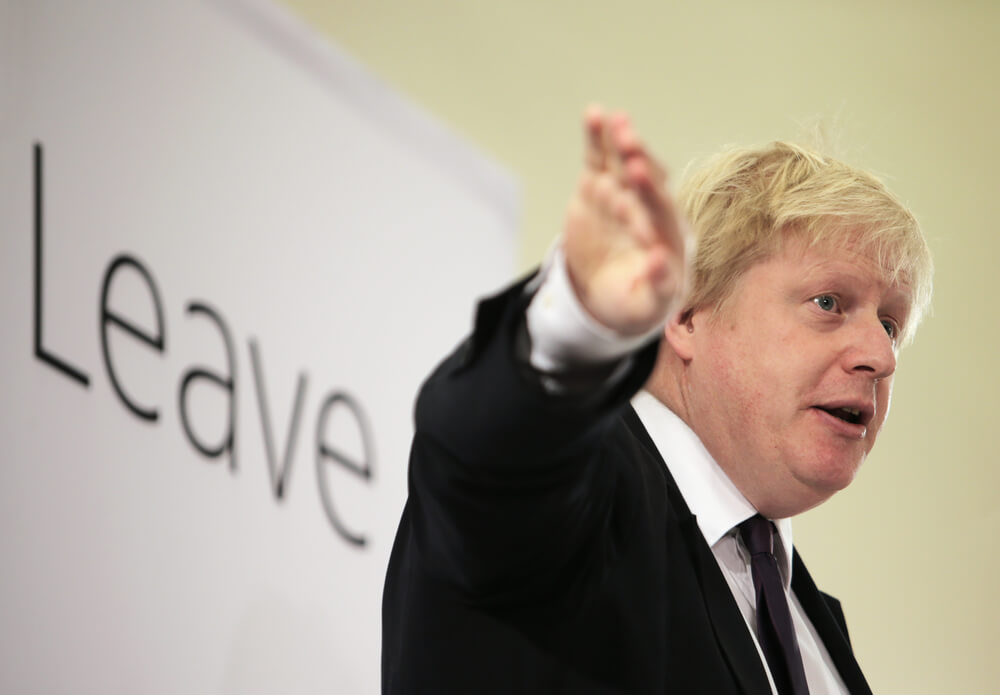With Boris Johnson confirmed as the next leader of the Conservative Party and British prime minister, the outlook for the British economy has become murkier — and potentially more perilous.
Johnson’s comprehensive victory over Jeremy Hunt has made it more likely that Britain could leave the European Union on Halloween without a withdrawal agreement, a prospect that even the most ardent Brexit believers concede would be disruptive in the short-term.
Most economists think a so-called “no-deal” Brexit will be a lot worse than that.
A deep recession is widely predicted for that scenario. Whether it would be as deep as the one that followed the global financial crisis — more than 6% — no one knows, but almost all economists agree that jobs will be lost and that public finances will get stretched.
A “no-deal” Brexit means that on Nov. 1, tariffs will be slapped on traded goods between the U.K. and the remaining 27 EU countries. Other impediments to trade, including on Britain’s crucial financial services sector, would be imposed, such as new restrictions on the movement of people, customs and regulatory standards. Britain would also face the prospect of losing the trade deals the EU has struck over the years, including recent ones with Canada, South Korea and Japan — these account for around 11% of U.K. trade.
Richard Branson, the Virgin Group founder whose career has taken him from owning a record label to planning flights to space, thinks it will be a disaster — so much so, he says, that the pound will slump in value to be worth just a dollar for the first time ever. The pound has borne the brunt of Brexit uncertainty, falling more than 10% from $1.50 on the day after the June 2016 referendum. It’s near two-year lows at $1.2450 as the “no-deal” talk escalates.
Though both sides of the English Channel will suffer in a “no-deal” scenario, Britain would suffer relatively more given that British exports to the EU account for around 13% of the country’s annual GDP, versus 2.5% of the EU’s.
Planning for a “no-deal” Brexit, which Johnson is expected to accelerate in his first days in 10 Downing Street, will help marginally.
Measures such as stockpiling medicines, sourcing more products from outside the EU or modifying road links in southeast England around the port of Dover to manage freight traffic can help, but only up to a point.
“Planning is unlikely to do much to mitigate the short-term disruption of ‘no deal’,” said John Springford, deputy director at the Centre for European Reform.
For one, he said, there is “too little time to build new border and road infrastructure to reduce congestion at the Dover-Calais crossing and on the M20 motorway in Kent.”
That raises the stakes for companies like the operator of the Channel Tunnel, which said Tuesday that a “no-deal” Brexit was now the main scenario in its earnings forecasts. Business groups like the Confederation of British Industry issued statements after Johnson’s election urging him to secure a deal.
In his pitch to become prime minister, Johnson said he wants an agreement but that he would make sure Britain leaves the bloc on Oct. 31, the revised Brexit date after the initial March 29 deadline was extended following the British Parliament’s rejection of Theresa May’s withdrawal agreement. That deal dealt with citizens’ rights, Britain’s financial obligations to the EU following 46 years of membership and making sure no hard border emerges between EU member Ireland and Northern Ireland, which is part of the U.K. The EU has said a deal is a pre-requisite before discussions can commence on a wide-ranging trade pact.
With parliament seemingly opposed to “no-deal,” many Brexiters have promoted the idea that Johnson suspend parliament to allow Brexit to happen. The implications of such a move would be unpredictable. It could lead to civil unrest and a surge in Scottish nationalism, in addition to the instant economic hit. Johnson has said he doesn’t want to go down that path but hasn’t ruled it out.
Given these uncertainties, business executives are unsure how to plan and have reined in investment over the past two years. That’s one of the main reasons why Britain’s economy has stuttered and talk of a recession has grown.
“With economic growth already faltering, a disorderly ‘no-deal’ Brexit could cause widespread disruption to trade, a sharply lower exchange rate, higher inflation and lower living standards,” said Arno Hantzsche and Garry Young of the National Institute of Economic and Social Research.
Most forecasters concur with that analysis so it would be a big step for Johnson to back such a move, without a mandate — in the Brexit referendum of June 2016, talk of a “no-deal” Brexit was confined to the periphery of the Leave campaign.
Johnson could therefore push for a general election in the fall after what many expect to be a failed attempt at renegotiating May’s withdrawal agreement. With opinion polls showing Britain’s electorate split across multiple parties, all bets are off on the outcome and whether any incoming government backs another referendum to reverse the initial result.
Johnson could equally opt to ditch his “do-or-die” pledge with regard to an Oct. 31 Brexit and seek another extension, giving him time to put a crowd-pleasing tax-cutting budget in place for an election next year.
Whatever happens — and given this is Brexit, anything can and probably will — the British economy is set to remain stuck in the mud for months to come.
Whether it sinks will hinge on the decisions Johnson makes in his first weeks in power.
© The Associated Press. All rights reserved.
